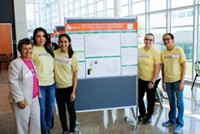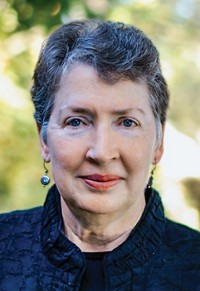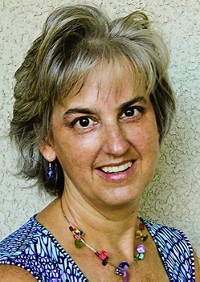Advertisement
Grab your lab coat. Let's get started
Welcome!
Welcome!
Create an account below to get 6 C&EN articles per month, receive newsletters and more - all free.
It seems this is your first time logging in online. Please enter the following information to continue.
As an ACS member you automatically get access to this site. All we need is few more details to create your reading experience.
Not you? Sign in with a different account.
Not you? Sign in with a different account.
ERROR 1
ERROR 1
ERROR 2
ERROR 2
ERROR 2
ERROR 2
ERROR 2
Password and Confirm password must match.
If you have an ACS member number, please enter it here so we can link this account to your membership. (optional)
ERROR 2
ACS values your privacy. By submitting your information, you are gaining access to C&EN and subscribing to our weekly newsletter. We use the information you provide to make your reading experience better, and we will never sell your data to third party members.
Careers
ACS Award for Encouraging Disadvantaged Students into Careers in the Chemical Sciences
January 23, 2006
| A version of this story appeared in
Volume 84, Issue 4

Sponsored by the Camille & Henry Dreyfus Foundation
Even a broken bone that left Susan R. Fahrenholtz hobbling around couldn't slow her down, recalls a colleague.
"I can think of few people who have exhibited such a strong concern for enhancing the lives of disadvantaged students," says Maureen G. Chan, who worked with Fahrenholtz for more than 40 years at AT&T's Bell Laboratories.
Fahrenholtz, 70, an adjunct associate professor of chemistry at Fordham University's Lincoln Center Campus in New York City, has been championing disadvantaged students nearly her entire career.
"One of the things that keeps me going is helping students who don't have parental support but who are wonderful, wonderful kids," she says.
She earned a B.S. in chemistry from Cornell University and an M.S. from the University of Rochester, in New York. Her first job after graduation was as a research chemist at Eastman Kodak.
In 1962, Fahrenholtz began working for Bell Labs on polymer resist systems for microelectronic products. She also did basic research on singlet oxygen, carbonium ions, carbenes, nuclear magnetic resonance, and polymer compatibility.
In the early 1970s, Fahrenholtz got involved in tutoring disadvantaged students at a middle school. "I saw how with just a little bit of help, the kids do much better," she says. A few years later, she began teaching evening classes at Fordham to help adults who never went to college obtain a degree.
At Bell Labs, she participated in programs started by her research division to attract minorities and women to the sciences. She mentored several junior and senior high school students in her lab, developed polymer demonstrations for the students, and recruited her colleagues to interact with the students.
In 1984, Fahrenholtz left her research division to become a full-time member of Bell Labs' administrative staff, directing academic services for four programs for minority and women students.
Her colleagues recall many instances where Fahrenholtz fought for opportunities for her students. One high school senior who placed fifth in her class was rejected by Rutgers University because of her low English scores. (English was her second language.) Fahrenholtz contacted the school and wrote a special recommendation letter. The student was accepted and went on to receive straight A's her first semester.
Another student, Paulo L. Lizano, remembers Fahrenholtz' support and encouragement while he was in high school. "Being Hispanic and growing up in a low-income household made it difficult to even think about going to college," he said. "Mrs. Fahrenholtz helped me see that I can succeed in college and go on to pursue a career in science." Lizano is now a senior at Rutgers, pursuing a B.S. in biochemistry. He has been accepted to medical school and will begin in August.
Fahrenholtz, who is now retired from Bell Labs, continues to be active in her community. In addition to teaching at Fordham, she volunteers with the North Jersey Section Summer Educational Experience for Economically Disadvantaged (SEED) students program, which provides mentors for high school students doing scientific research at various universities.
She recruits mentors, counsels the students, identifies opportunities for scholarships and graduate fellowships, takes the students on field trips, and helps them prepare posters for conferences. She has stayed in touch with her students and has even attended their weddings and helped them find permanent employment.
Fahrenholtz says she hopes to inspire others in the sciences to also donate time to help disadvantaged students. "It is a really rewarding experience," she says.
The award address will be presented before the Division of Chemical Education.-Linda Wang








Join the conversation
Contact the reporter
Submit a Letter to the Editor for publication
Engage with us on Twitter